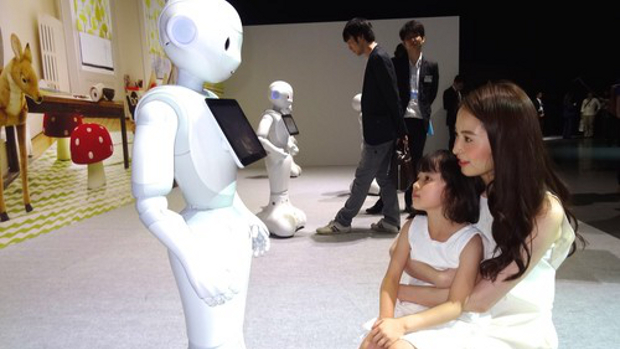Robots may start taking over the workplace as early as 2018, according to a forecast from research firm Gartner.
The analyst firm’s latest predictions for 2016 and beyond included a large take up of automation, with smart machines set to outgrow employees in fast growing companies by 2018.
The forecast said 45% of the fastest-growing companies, such as new start-ups, will have fewer employees than instances of smart machines, while pre-existing organisations with large amounts of older technologies will be slower to adapt.
Some possible examples included a fully automated supermarket or a security firm offering drone-only surveillance services.
The speed, cost savings, productivity improvements and scalability of smart technology for specific tasks can offer dramatic advantages over the recruiting, hiring, training and growth demands of human labour, said Gartner.
Some further examples include the forecasted 20% of business content expected to be authored by machines.
Shareholder reports, legal documents, market reports, and whitepapers will all be candidates for automated writing tools as smart technologies develop the ability to proactively assemble and deliver information through automated composition engines.
In just three years, Gartner expects ‘robo-bosses’ will be supervising more than 3 million workers globally, rather than human managers. The report said supervisory duties have shifted to measuring worker performance directly tied to output and customer evaluation, which can be consumed more effectively by machines.
Gartner also predicted that by the end of 2018, customers interacting with digital channels will be recognised by face and voice as opposed to account details. Mimicking human conversations while factoring in history, tone and timing will be “the last mile” for multichannel customer services, creating “seamless, two-way engagement”.
Meanwhile, 40% of mobile interactions will be facilitated by smart agents, or virtual personal assistants (VPAs), by 2020. These technologies will monitor user behaviour data stored in cloud-hosted neural networks to draw inferences about people, content and contexts.
Online finance will be disrupted by the ‘programmable economy’ with the introduction of autonomous software agents that exist and make economic transfers free of human control. By 2020, Gartner said smart agents will participate in 5% of all economic transactions.
The report painted a highly digital future with an algorithmic and smart machine-driven world where people and machines will need to define harmonious relationships.
“The ‘robo’ trend, the emerging practicality of artificial intelligence, and the fact that enterprises and consumers are now embracing the advancement of these technologies is driving change,” said Daryl Plummer, Gartner VP and Fellow.
“[The predictions] begin to separate us from the mere notion of technology adoption and to draw us more deeply into issues surrounding what it means to be human in a digital world.”
IDG News Service







Subscribers 0
Fans 0
Followers 0
Followers